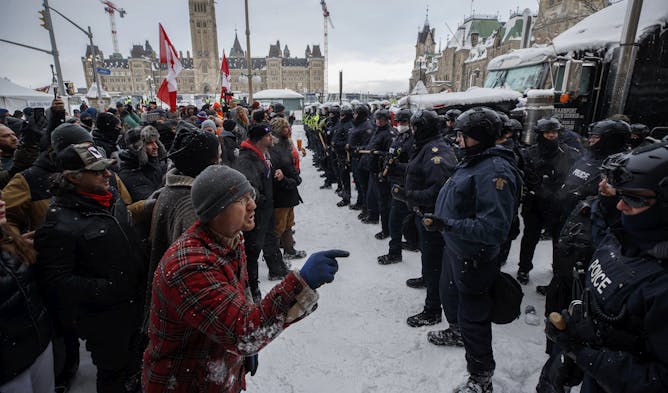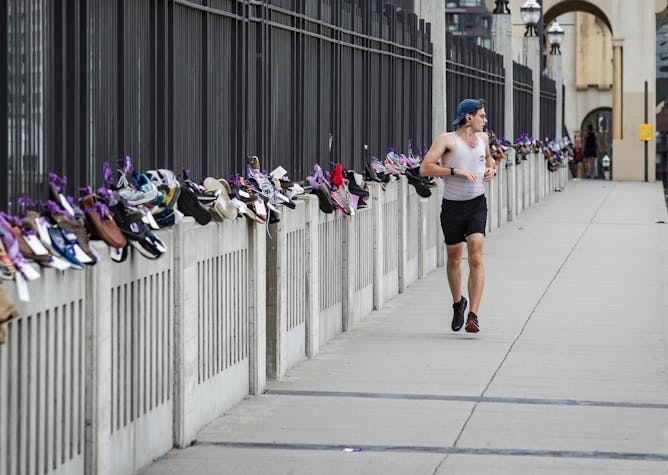|
A little over a year ago, thousands of people descended on downtown Ottawa as part of the so-called “freedom convoy.” A key theme of the protest movement was anger directed toward the government, scientists and even ordinary people following public health recommendations. Periods of crisis can come with a lot of stress, and people often search for something or someone to blame when things go wrong.
Today, in The Conversation Canada, Jordan Foster and David Pettinicchio from the University of Toronto and Michelle Maroto from the University of Alberta explain how blame works in times of crisis.
Blame is a powerful emotion that can help people make sense of the uncertainty around them. It allows us to ascribe faults to some and excuse others. As the convoy’s anniversary slips out of view, it’s important to understand what’s driving the ways we cast blame and just how far beyond the pandemic they extend.
Also today:
|

Police move in to clear downtown Ottawa near Parliament Hill of protesters after weeks of demonstrations on Feb. 19, 2022.
THE CANADIAN PRESS/Cole Burston
Jordan Foster, University of Toronto; David Pettinicchio, University of Toronto; Michelle Maroto, University of Alberta
Examining how and why we cast blame on others can help us understand the convoy protests and the different ways people reacted to pandemic restrictions.
|

A man runs past shoes hung on the Burrard Bridge in Vancouver in remembrance of victims of illicit drug overdoses on International Overdose Awareness Day in August 2020.
THE CANADIAN PRESS/Darryl Dyck
Sara Gordon, University of British Columbia
Decriminalization helps recharacterize drug addiction as a chronic health condition instead of a criminal activity, reduces the stigma associated with drug use and improves treatment options.
|

Only when the full extent of the wrongdoing has been identified can real progress be made.
(Shutterstock)
Shannon Giannitsopoulou, University of Toronto; MacIntosh Ross, Western University; Martine Dennie, University of Manitoba; Nicole O'Byrne, University of New Brunswick
By addressing the root causes of violence, we can reimagine systems to allow for more supportive, safe and accountable sport communities.
|

Satellite data isn’t collected and treated the same way location data are.
(Shutterstock)
Tommy Cooke, University of Maryland, Baltimore County; Alicia Sabatino, University of Maryland, Baltimore County; Benjamin Muller, Western University; Kirstie Ball, University of St Andrews
Cellphones are constantly collecting location data from global satellites, but there is uncertainty about who is using these data, and for what purposes.
|
Health
|
-
Catherine Loveday, University of Westminster
In March 2022, it was announced that Willis had aphasia. The latest diagnosis is sadly worse.
|
|
Politics
|
-
Stefan Wolff, University of Birmingham; Tatyana Malyarenko, National University Odesa Law Academy
The message is clear: this war must end in Ukraine and the west will do all it can to ensure this outcome.
|
|
Science + Tech
|
-
Valerie van Mulukom, Coventry University
Spontaneous trips down memory lane: why and how the mind wanders.
|
|